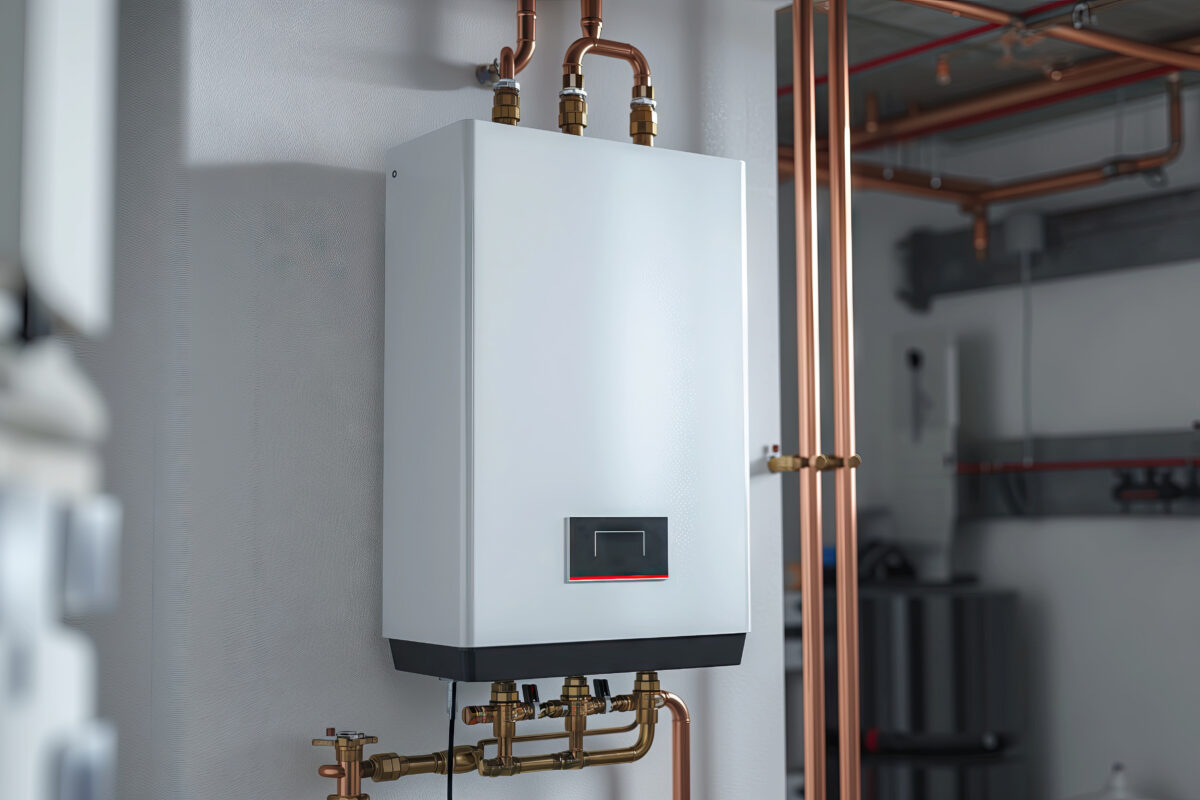Upgrading to a tankless water heater can be a game-changer for your home’s efficiency and comfort. These systems provide hot water on demand, eliminate the need for a bulky storage tank, and can even lower energy bills. However, before jumping into a tankless water heater installation, there are key factors to consider to ensure a smooth transition.
How a Tankless Water Heater Works
Unlike traditional water heaters that store and heat a set amount of water, tankless models heat water only when you need it. When you turn on a hot water tap, cold water travels through a heat exchanger, quickly reaching the desired temperature. This efficient process eliminates standby heat loss, making tankless systems up to 34% more energy-efficient for homes that use less than 41 gallons of hot water daily (Energy.gov).
Key Factors to Consider Before Installation
1. Choosing the Right Size
Tankless water heaters come in different sizes based on flow rate (measured in gallons per minute). Selecting the right size depends on:
- The number of fixtures using hot water simultaneously
- Your home’s peak hot water demand
- The climate in your area (colder regions require more heating power)
A professional plumber can calculate the best unit size to ensure you never run out of hot water.
2. Gas vs. Electric Models
Tankless water heaters can be powered by gas or electricity. Each type has pros and cons:
- Gas models heat water faster and work well for larger households but may require ventilation.
- Electric models are easier to install and maintain but might struggle with high-demand usage.
Discussing your household’s needs with a plumbing expert can help determine the best option.
3. Installation Requirements
A tankless water heater installation isn’t always a simple swap for your old system. Key installation factors include:
- Upgraded gas lines or electrical capacity – Some homes may need modifications to handle the energy demand.
- Proper venting – Gas models require specific venting to prevent carbon monoxide buildup.
- Water quality – Hard water can cause mineral buildup in the system, so a water softener may be necessary.
4. Cost and Long-Term Savings
While a tankless water heater installation costs more upfront—typically between $1,000 to $3,500—it can save you money in the long run. These units last 20+ years, compared to 10-15 years for traditional heaters, and can reduce energy costs by $100 or more per year (U.S. Department of Energy).
Is a Tankless Water Heater Right for You?
If you want an energy-efficient system with endless hot water, a tankless water heater is a great investment. However, it’s essential to work with a professional plumber for proper sizing, installation, and maintenance.
Call Beis Plumbing for Expert Installation
Thinking about upgrading? Beis Plumbing offers expert tankless water heater installation services to ensure your home gets reliable, energy-efficient hot water. Contact us today to schedule a consultation and get a custom recommendation!

